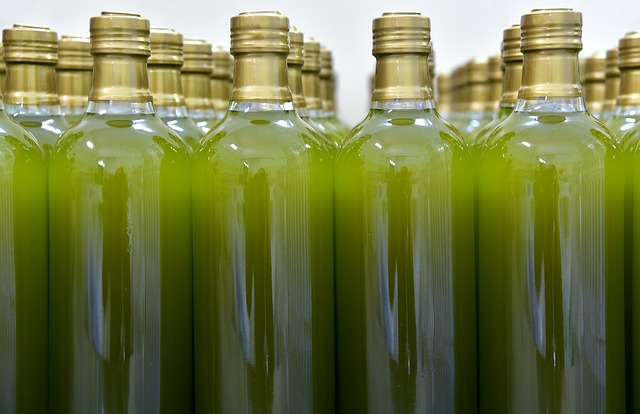Recent research states that krill oil is a more potent and beneficial source of omega-3 oils than regular fish oil. Krill carries substantial benefits for heart and brain health, along with slowing down ageing process, due to containing an antioxidant called astaxanthin.
Krill is good for your heart, keeping arteries clear, therefore heart attacks are less likely. Krill oil maintains healthy cholesterol levels.
- Lowers LDL
- Raising HDL (as high as 44% in some cases)
- Liver Health
- Brain and cognitive function improve, enhancing memory function making
- Improves your mood and helps depression.
- Has anti-cancer effects, due to its antioxidant activity.
- Reduces blood sugar
Krill oil helps with treating inflammation and pain and has been very effective for pain relief for rheumatoid arthritis, dysmenorrhea and premenstrual syndrome.
Some therapeutic effects where noted during a double-blind, randomised control trial by the “Alternative Medicine Review” indicated that the DHA and EPA content in krill oil was very helpful for the following disorders:
Adult ADHD Dyslexia Autism Dementia – along with other cognition disorders Aggressive behaviour Huntington disease Bipolar disorder Manic depression
Krill oil can also help you lose weight. The Omega-3 fatty acids in Krill oil stimulate the storage of glucose to be stored in the muscles as glycogen, while at the same time diverting fatty acids away from the fat synthesis and oxidative pathways. It uses them as fuel instead of depositing them as fat.
What Is Krill Oil?
Krill oil comes from shrimp-like crustaceans that account for the world’s largest single-species animal biomass. They are quite tiny and measure one to five centimetres in length and are mostly found in cold regions, such as the Antarctic and North Pacific Oceans.
They are eaten by whales, seals, and penguins, among other oceanic life. Krill were harvested to feed aquatic life in aquariums, bait, and food called okiami for the Japanese.
Krill oil is a rich source of omega-3 unsaturated fatty acids, particularly docosahexaenoic acid (DHA) and eicosapentaenoic acid (EPA), but there is a major difference between fish oil and Krill oil.
In fish oil, DHA and EPA are present in triglycerides, whereas in Krill oil they are present in phospholipids.
Phospholipids are what cell membranes are made of.
This means that the superbeneficial omega-3 fatty acids in krill oil are more easily absorbed with research indicating that krill oil can have positive effects on the brain within as little as two hours of ingestion! How good is that!
The EPA leg of a krill phospholipid is attached to a molecule of astaxanthin, a very powerful antioxidant. Since the phospholipid structure, EPA and DHA in krill oil are more absorbable they can quite easily pass through the mitochondria and the cellular nucleus.
Both EPA and DHA krill oil have a complex phospholipid profile, which include phosphatidylcholine. This substance contains reductive-stress-reducing choline, which has a potent emulsifying effect.
Krill oil also contains Vitamin A, D and E along with canthaxanthin (a potent antioxidant. The antioxidant potency of krill oil is up to 48 times higher than that of ordinary fish oil. Astaxanthin in krill oil fights the harmful effects of ultraviolet light on skin.
Due to more efficient absorption and the antioxidant content, there is rarely any fishy aftertaste and has a fast absorption into brain tissues.
Why Are Antioxidants Important?
Antioxidants are required to fight cell-damaging metabolic by-products, which are called free radical scavengers.
Antioxidants strengthen the immune system, memory, cardiovascular system and help in maintaining a more youthful appearance due to anti-aging effects at a cellular level.
Despite the fact that antioxidants are widely available in vegetables, fruits (especially berries), and some herbs etc many people are not eating adequately and therefore become deficient in vital nutrients including antioxidants.
Therefore when people consume fast foods and rarely eat such fresh foods they probably have more free radical scavengers in their body contributing to ill health.
According to research based on ORAC (Oxygen Radical Absorptance Capacity) evaluations the antioxidant properties can offer the following:
• Over 300 times more powerful than vitamin A and vitamin E
• Over 47 times more powerful than lutein
• Over 34 times more powerful than coenzyme Q-10
Any Contraindications/Downsides?
• Anyone who is allergic to shrimps or other shell fish (since krill are a crustacean) so it’s probably wise not to take krill oil.
• Krill oil has a low level of Vitamin D, so if you require this vitamin you may need to ensure some healthy sun exposure for a few minutes each day, or ensure any other supplements you are taking i.e. calcium include vitamin D.
• Krill oil can be more expensive than regular fish oils.
Ideally, you should always aim to include a selection of fish in your diet and not rely totally on supplements.
Taking Krill oil in conjunction with a healthy balanced diet that includes fish – especially the fatty fish like salmon, tuna, trout, herring, mackerel, sardines etc will ensure you have a good supply of the abovementioned nutrients in your diet including free radical scavengers, aiding you to maintain optimum health.
If you suffer from any of the health disorders mentioned it would be a good idea to seek professional guidance here since Krill oil alone may not be all that you require for relief and resolving the problem.
Often times making a few simple changes to ones diet can improve things dramatically, so seeking advice from a nutritionist or naturopath in this instance can ensure you are eating the correct foods and improve your digestive assimilation and absorption of nutrients.
Any digestive inadequacies will be counterproductive in you utilising nutrients such as minerals, vitamins and omega oils.
You can find much more information on living a holistic lifestyle in these free magazines and on our YouTube channel.
Lyn Craven






